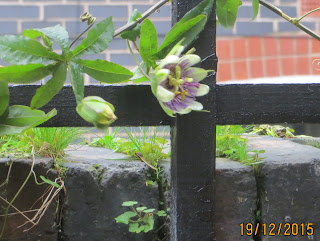Roland was educated at Uppingham School in Rutland, where he met Vera Brittain’s brother Edward Brittain. In 1913, Roland began courting Edward's sister, Vera and was awarded a scholarship to study at Merton College, Oxford University in 1914
Abandoning his studies, Roland volunteered for service in the Army when war broke out, joining the Worcestershire Regiment and was posted to the Western Front.
Roland and Vera became engaged on his first leave in August 1915. Roland wrote Vera letters from the Front, about British society, the war, the purpose of scholarship and aesthetics, as well as their relationship. She kept his letters in her diaries and mentioned them in later writings. Within his correspondence Roland also sent a number of poems.
On 23rd December 1915 Roland died of wounds in the Casualty Clearing Station at Louvencourt, France, having been shot through the stomach by a sniper while inspecting wire in the trenches at Hébuterne. He was 20 years old. He was buried in LOUVENCOURT MILITARY CEMETERY, France, Grave Reference: Plot 1. Row B. Grave 20.
Sue Robinson of the Group Wenches in Trenches visits Roland’s grave when she takes members of the Group to France. https://www.wenchesintrenches.org/
 |
| Photograph of Roland's grave by Sue Robinson |
'Villanelle' poem written by Roland Leighton to Vera Brittain
This poem is from The First World War Poetry Digital Archive, University of Oxford; © McMaster University, Mills Memorial Library, The William Ready Division of Archives and Research Collections
Violets from Plug Street Wood,
 |
| WW1 silk postcard |
Sweet, I send you oversea.
(It is strange they should be blue,
Blue, when his soaked blood was red,
For they grew around his head:
It is strange they should be blue.)
Think what they have meant to me -
Life and hope and Love and You
(and you did not see them grow
Where his mangled body lay
Hiding horrors from the day;
Sweetest, it was better so.)
Violets from oversea,
To your dear, far, forgetting land
These I send in memory
Knowing you will understand.
Ploegsteert Wood was a sector of the Western Front in Flanders during the First World War. Part of the Ypres Salient, “Plugstreet Wood” (as British troops called it) is located around the Belgian village of Ploegsteert, Wallonia.
After fierce fighting in late 1914 and early 1915, Ploegsteert Wood became a quiet sector where no major action took place. Units were sent here to recuperate and retrain after tough fighting elsewhere and before returning to take part in more active operations. From January to May 1916, Winston Churchill served in the area as Commanding Officer (Lieutenant-Colonel) of the 6th Battalion of the Royal Scots Fusiliers.
There are numerous Commonwealth War Graves Commission (CWGC) cemeteries and memorials around the Wood, including the Hyde Park Corner (Royal Berks) CWGC Cemetery and the Berks CWGC Cemetery Extension with the Ploegsteert Memorial to the Missing. The Ploegsteert Memorial commemorates more than 11,000 British and Empire servicemen who died during the First World War and have no known grave. It is one of several CWGC Memorials to the Missing along the Western Front. Those lost within the Ypres Salient without a known grave are commemorated at the Menin Gate and Tyne Cot Memorial to the Missing, while the missing of New Zealand and Newfoundland are honoured on separate memorials.
Sources: Find my Past, Free BMD
https://derbyshireterritorials.uk/tag/ploegsteert-wood/
R.A.L
Hédauville, poem by Roland Leighton to Vera Brittain
The sunshine on the long white road
That ribboned down the hill,
The velvet clematis that clung
Around your window-sill
Are waiting for you still.
Again the shadowed pool shall break
In dimples at your feet,
And when the thrush sings in your wood,
Unknowing you may meet
Another stranger, Sweet.
 |
| Passion flower (Passiflora) in bloom December 2015 |
And if he is not quite so old
As the boy you used to know,
And less proud, too, and worthier,
You may not let him go -
(And daisies are truer than passion-flowers)
It will be better so.
For more information: http://www.oucs.ox.ac.uk/ww1lit/collections/leighton

